Will the “Myanmar democracy” survive the Rohingya crisis?
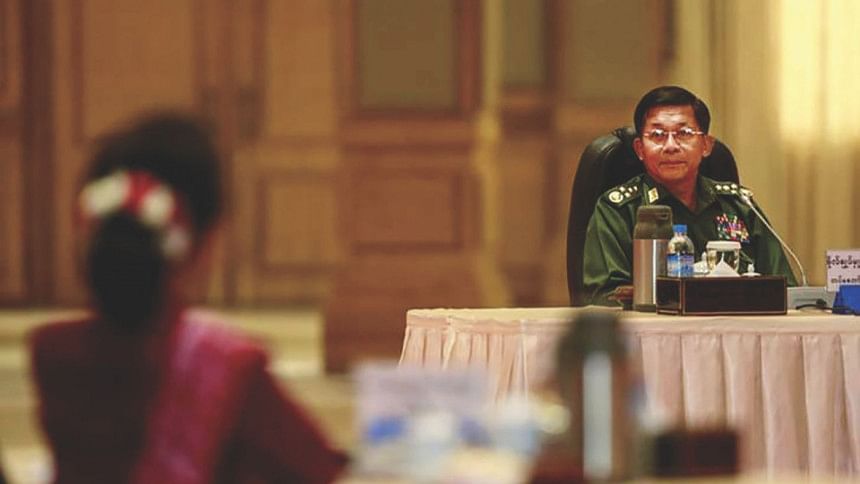
These are difficult times for Aung San Suu Kyi's democracy. The crisis is the creation of her xenophobic army chief Senior General Min Aung Hlaing. However, as Hlaing went about committing genocide on the Rohingya, Suu Kyi sided with the general in a show of unity. On other matters, however, she does not see eye to eye with Hlaing.
Strangely, both Suu Kyi and Hlaing are Islamophobes and are in sync in dealing with minority communities—the Shan, Karen, Kachin, Rohingya, etc. Her handling of desperately poor but peaceful Rohingyas reflects her bigotry and her complicity, which has outraged world opinion. Her prejudices became clear during the 2015 election, when NLD did not field any Muslim candidate from any seat.
Myanmar's so-called democratic government is a forked administration—Suu Kyi's powerless civilian government and the junta-led ministries independent of Suu Kyi. This disconnect between Suu Kyi and Hlaing has brought the core issue to the fore—that of democracy versus military dictatorship.
The powers enjoyed by Suu Kyi as state counsellor are at best tenuous under the military-drafted 2008 constitution. The constitution debarred her from becoming president and she knew that she could not amend the draconian provisions of the constitution given the seat arithmetic in the parliament. Yet she went ahead to play the game laid out by the military.
Not only can she not change the charter, the National Defence and Security Council (NDSC) is the Damocles' sword over her head. This most powerful body has 11 members, six of whom are military men—an in-built majority. Naturally, all important decisions have to be approved by the NDSC. The most dangerous provision in the constitution says that the military can retake powers of the government in case of threats to "national security" or "national unity"—essentially any time the junta wants.
Worst still, the military holds effective charge of three ministries—defence, home affairs and border control—all led by serving generals. The home ministry has taken over the responsibilities of immigration and population, making it very powerful. Suu Kyi's government also does not control the police, justice system, security services and ethnic issues.
Expulsion of the Rohingyas has been the military's plan since 1962, when General Ne Win seized power after the parliamentary democracy experiment failed to establish peace and unite the country. The entire anti-Rohingya narrative is based on lies, which has converted ethnic majority Bamars into ultra-nationalists.
To a large extent, the West is responsible for the current Rohingya crisis. As part of Pivot to Asia (i.e. containing China), President Obama visited Myanmar twice—in 2012 and 2014, when he met Suu Kyi. Though Rohingya persecution was ongoing at that time in Rakhine, Obama did not ask Naypyidaw to stop the oppression. Rather to encourage Suu Kyi's democracy, President Obama overlooked the gross human rights violations committed by the military and lifted the economic sanctions in October 2016. Now, geopolitical games involving India, China, US, Russia and Japan over Rakhine are putting pressures on Suu Kyi's government, while the expelled Rohingyas wait to return home from Bangladesh.
However, the waiver of sanctions greatly overjoyed Hlaing. He waved the Suu Kyi flag to bring Myanmar out of pariah status and get readmitted into the comity of nations. The West was befooled that democracy has returned to Myanmar and welcomed Suu Kyi with open arms, barely realising that she is a lame-duck head of government.
Clever Hlaing went ahead with his anti-Rohingya campaign, knowing well that his military's brutal actions will be blamed on Suu Kyi and not on him. Thus the latest attacks on Rohingyas in 2016 and 2017. He cared little about Suu Kyi's reputation or credibility. Hlaing's glee has now turned sour as the Trump administration has started to reverse Obama's Myanmar policies. Hlaing's impunity may not last long. Little did he foresee that world opinion would go against him.
Interestingly, as international pressure mounts on Hlaing, his popularity has surged within Myanmar, and Suu Kyi is on the back foot. Thousands of Bamar Buddhists rallied in Yangon on November 1, singing patriotic songs. Hlaing is seen as the saviour of Myanmar from Muslim takeover. This is bad news for Suu Kyi's democracy as the old political groups—USDP and allied parties—have become active.
Despite her popularity, Suu Kyi's moral capital is now in tatters. Instead of protesting the junta's brutality she went ahead to make that speech on September 19, 2017, which was clearly drafted by the junta. She denied any wrongdoing by the military and hid behind an "iceberg of misinformation"—to quote Suu Kyi herself. That speech actually undermined her integrity.
In her book Freedom from Fear Suu Kyi wrote, "It is not power that corrupts but fear. Fear of losing power corrupts those who wield it and fear of the scourge of power corrupts those who are subject to it." How true. If only the lady could overcome the fear of losing power, she could probably save her brand of democracy from the quasi-military dictatorship and restore the rights of minorities, including Rohingyas. Ultra-nationalism and xenophobia have no place in democracies.
Myanmar as a country has the legal status of a sovereign state. But with its internal contradictions it is not yet a "nation". Nation-building requires embracing and integrating all people irrespective of race, religion and culture through ensuring human rights.
The paranoid junta does not want to see Suu Kyi succeed in establishing peace or democracy. Perception of threat to national security is the raison d'être of the military. According to observers, instability in Rakhine and international pressure can lead to a collapse of the Suu Kyi government and to the power vacuum being filled in by the military once again. If that happens, it will be the end of the "Myanmar democracy".
Mahmood Hasan is a former ambassador and secretary of the Bangladesh government.



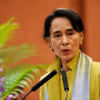
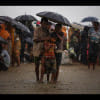

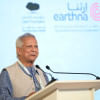
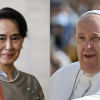


Comments